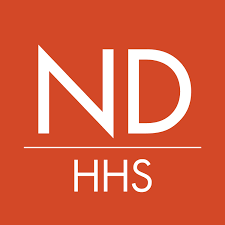BISMARCK, ND (KXNET) — Severe illness from COVID, the flu, and respiratory syncytial virus (RSV) can be problematic any time of year, but as we enter a season where these conditions are more frequent than ever, it’s important to know how to respond. As such, the Department of Health and Human Services (HHS) has begun working with healthcare providers to encourage widespread awareness of diseases that are even more prevalent in fall and winter.
“To become the healthiest state in the nation,” Says State Health Officer Dr. Nizar Wehbi, “it’s important for all North Dakotans to be engaged in making decisions to safeguard their health and well-being. Fall and winter are a great time to connect with your trusted health care provider and discuss routine health screenings and immunizations.”
Vaccinations for the flu and COVID-19 are recommended annually for all people older than six months. While only one lifetime dose of RSV immunization is recommended for most people, a second may be required for high-risk children. A data dashboard on the flu, COVID, and RSV can be found on HHS’s website, and a vaccine locator is expected to be released in October.
“Older adults and individuals with weakened immune systems can be particularly prone to complications associated with infectious illnesses like RSV,” said Joseph Halvorson, a nurse practitioner and section chair of internal medicine at Essentia Health in Fargo. “The RSV vaccine for adults over 60 has only been available for a little over a year, so many people have not heard about or obtained it yet. Now is a great time to do so.”
Thankfully, there are plenty of ways one can also avoid being sick if the vaccines alone are not enough to do the job: Practicing good hand hygiene, covering your nose and mouth when you sneeze, and cleaning surfaces that are frequently used serve as excellent ways to help prevent the spread of diseases. If you do get sick, it is important to stay home, to both recover and prevent spreading disease to others.
“Infants and young children are especially vulnerable because their immune systems aren’t fully developed yet, so it is important to talk to a trusted healthcare provider about immunizations,” said Dr. Tracie Newman, pediatrician and Health Officer for Fargo-Cass Public Health. “Nutrition, hand hygiene, and immunizations help young people thrive.”
Immunizations and medicine for respiratory illnesses are available at clinics, local public health businesses, and pharmacies. To learn more about which treatments are right for you, visit this page on the HHS website.

